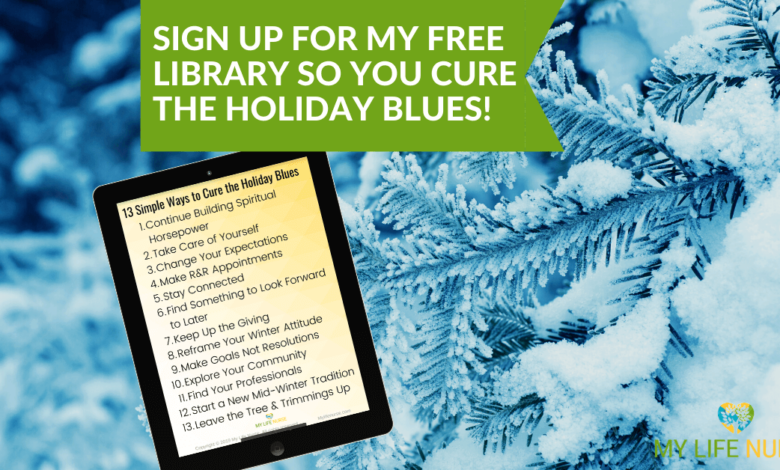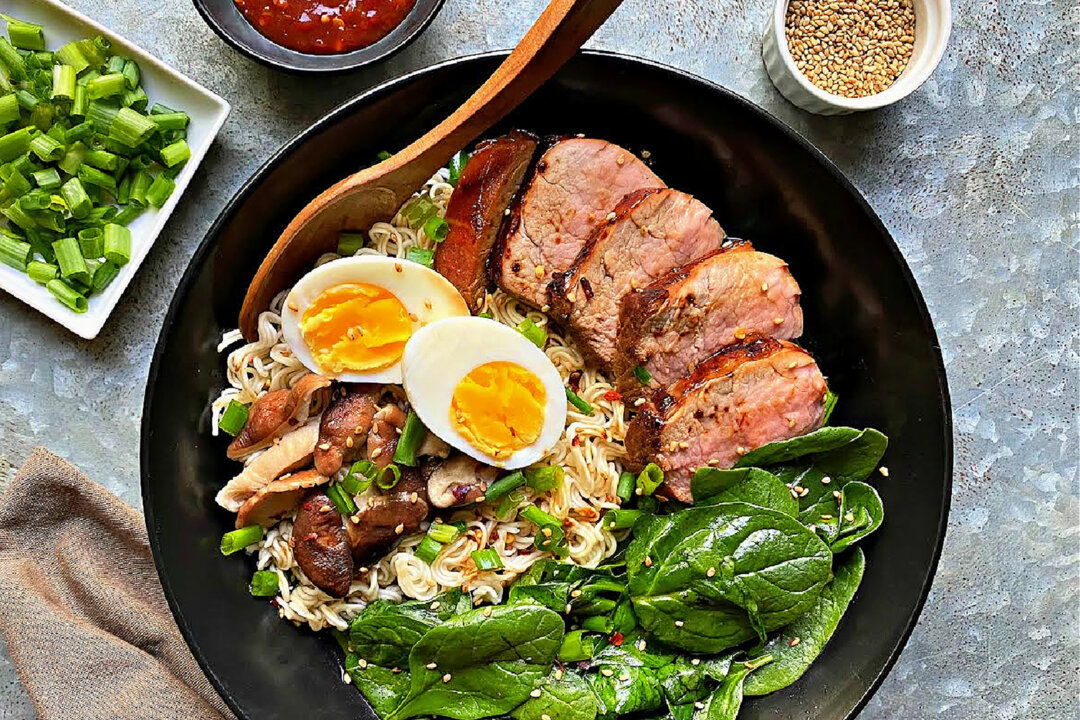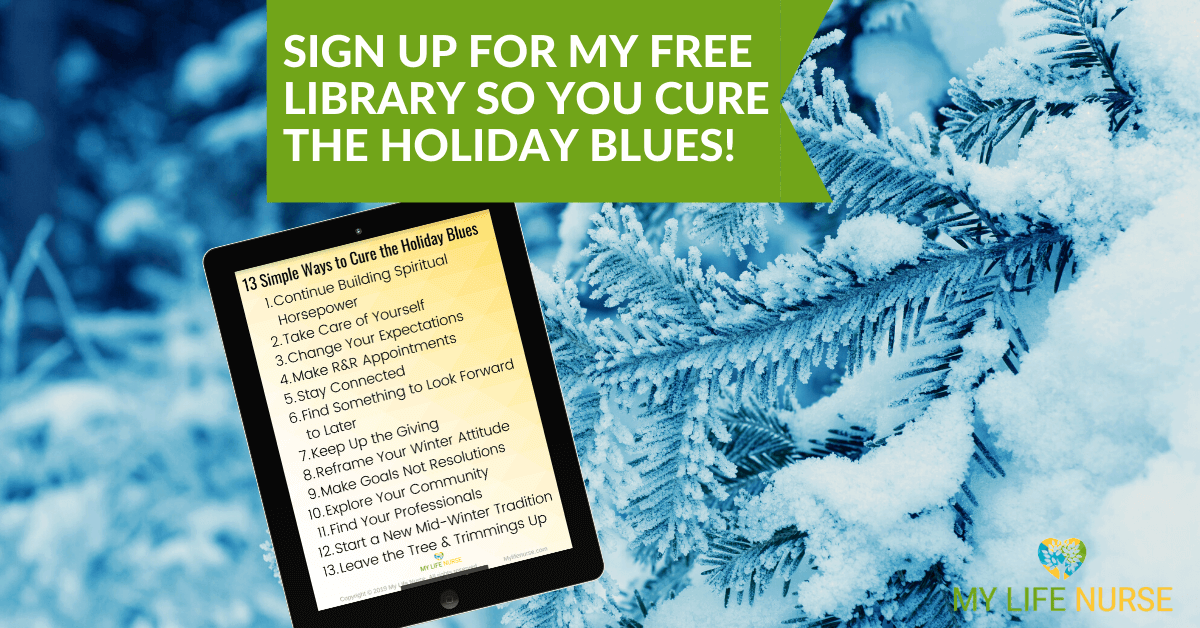
A Cure for That Listless Holiday Feeling
A cure for that listless holiday feeling starts with understanding the root causes. This feeling, often characterized by a lack of energy and enthusiasm, can stem from societal pressures, personal expectations, and even past experiences. It’s not just about the holidays themselves, but also about how we approach them. We’ll explore actionable strategies to combat this common feeling and discover how to create a more positive and fulfilling holiday season.
This exploration delves into the multifaceted nature of holiday listlessness. We’ll examine both external factors, such as family dynamics and societal expectations, and internal factors, like self-esteem and perfectionism. Practical remedies and strategies, from simple adjustments to significant lifestyle changes, will be presented, allowing you to tailor a plan to address your individual needs.
Understanding the “Listless Holiday Feeling”

The holiday season, often envisioned as a time of joy and togetherness, can unexpectedly bring a sense of emptiness and listlessness for many. This pervasive feeling, sometimes overlooked or dismissed, can stem from a complex interplay of societal pressures, personal expectations, and past experiences. This feeling isn’t necessarily sadness or depression, but rather a subtle yet significant lack of energy and motivation.
Understanding its nuances can pave the way for a more fulfilling holiday season.The “listless holiday feeling” manifests in various ways. Physically, it might present as fatigue, a lack of appetite, or a general feeling of being drained. Emotionally, it can manifest as a sense of disconnect from the festivities, a feeling of being overwhelmed, or a lack of enthusiasm.
Mentally, it can lead to difficulty focusing, a sense of being stuck in a rut, or a lack of inspiration. This often overlaps with the emotional aspects, as a feeling of disconnect or apathy can stem from internal conflicts. Recognizing these varying facets is key to addressing this feeling effectively.
Potential Causes of Listlessness
Societal pressures surrounding the holidays often contribute to this feeling. The pervasive media portrayal of perfect holiday moments can create unrealistic expectations, leading to feelings of inadequacy if personal experiences don’t match the idealized image. This pressure can be amplified by personal expectations, where individuals might feel compelled to participate in activities they don’t genuinely enjoy or to maintain a certain level of cheerfulness.
Furthermore, past experiences, such as difficult family dynamics or traumatic memories associated with holidays, can resurface and contribute to a sense of unease and listlessness.
Comparison with Other Holiday Emotions
While related, listlessness differs from other holiday emotions. Sadness, for instance, is typically characterized by a deeper sense of sorrow or grief, often accompanied by tearfulness or a sense of loss. Stress, on the other hand, is usually associated with a heightened sense of anxiety and worry. Listlessness, in contrast, is more about a pervasive lack of motivation and energy, often lacking the intense emotional component of sadness or stress.
It’s a feeling of being detached and unengaged with the festivities.
Common Misconceptions
A common misconception is that the holiday seasonshould* always be joyous and celebratory. This pressure to maintain a positive facade can lead to feelings of inadequacy and guilt if genuine feelings of listlessness arise. Another misconception is that everyone experiences the holidays in the same way. Individual experiences vary greatly based on personal circumstances, and acknowledging this diversity is crucial.
Common Themes and Patterns
Listlessness can affect individuals across different demographics. For example, those with demanding jobs or financial concerns may experience this feeling more acutely due to the added stress of the holidays. Those with strained family relationships might experience listlessness due to the emotional challenges inherent in these interactions. Likewise, those who have experienced past trauma or loss may have a heightened susceptibility to this feeling.
Understanding these common threads can help to address the root causes of listlessness within different populations.
Remedies and Strategies for Counteracting Listlessness
The holiday season, while meant to be joyous, can often leave us feeling drained and listless. This feeling stems from a combination of factors, including the pressure to maintain a festive atmosphere, social expectations, and the sheer volume of activities and commitments. Understanding the underlying causes is the first step to finding effective solutions. This article delves into practical remedies and strategies to combat the holiday listlessness and reclaim your joy.Addressing holiday listlessness isn’t about eradicating the season’s festivities, but rather about finding a healthier and more sustainable way to engage with them.
This involves adopting a balanced approach, incorporating activities that energize you, and managing expectations to avoid burnout.
Activity-Based Strategies
Holiday listlessness often manifests as a lack of energy and motivation. Engaging in physical activity can be a powerful antidote. Even short bursts of exercise, like a brisk walk or a quick workout session, can significantly boost your mood and energy levels. Consider scheduling these activities throughout the day to combat the sluggishness.
Feeling a bit blah after the holidays? It’s totally normal! But maybe a little inspiration from seeing dozens of graduates honored at a transformational leadership ceremony, like the one highlighted here dozens of graduates honored at transformational leadership ceremony , could be just the kick-start you need. Re-energizing your goals and finding new purpose can be a fantastic cure for that listless holiday feeling.
- Engage in outdoor activities. Fresh air and sunlight can revitalize you. A simple walk in the park or a hike in nature can significantly improve your mood and outlook. This can be especially effective if you pair it with a change of scenery.
- Schedule short breaks. Even 10-15 minutes of downtime can refresh your mind and body. Use these breaks to step away from the holiday hustle, breathe deeply, and re-center yourself. Short, scheduled breaks are far more effective than allowing yourself to get overwhelmed.
- Incorporate mindful movement. Yoga, tai chi, or even stretching can reduce stress and promote a sense of calm. These activities help to connect your mind and body, which is often lost in the flurry of holiday activities.
Mindset-Based Strategies
Our thoughts and perceptions significantly influence our emotions and actions. Reframing negative thoughts and adopting a more positive outlook can dramatically improve your experience during the holidays. This doesn’t mean ignoring the challenges, but rather approaching them with resilience and a proactive mindset.
- Practice gratitude. Focusing on the positive aspects of the holidays, like time spent with loved ones or special moments, can shift your perspective. Keeping a gratitude journal or simply taking time each day to reflect on what you’re thankful for can be powerful tools.
- Challenge negative self-talk. If you find yourself dwelling on negative thoughts or feelings, actively challenge them. Ask yourself if these thoughts are truly accurate or if they are simply a product of stress and pressure. Replace negative thoughts with more realistic and positive ones.
- Set realistic expectations. The holidays often come with unrealistic expectations of perfection. Recognize that it’s okay to not have everything perfect. This realization can significantly reduce stress and pressure, allowing you to enjoy the season more authentically.
Social Strategies
The holidays are a time for connection, but it’s also important to maintain healthy boundaries. It’s essential to prioritize your well-being and ensure you’re not overextending yourself socially.
- Prioritize meaningful connections. Focus on spending quality time with the people who matter most to you. This will reduce the stress of maintaining a large social calendar.
- Learn to say no. It’s okay to decline invitations or commitments that don’t align with your energy levels or goals. Setting boundaries is crucial for self-care.
- Schedule alone time. Make time for activities you enjoy, even if they are quiet and solitary. This is essential for maintaining your mental and emotional well-being.
Balanced Holiday Schedule
A well-structured holiday schedule can prevent burnout and maintain a sense of control.
- Plan for downtime. Don’t cram every minute of the holidays with activities. Schedule in periods of rest and relaxation to recharge your batteries. This can involve scheduling specific periods for relaxation or simply leaving some time open for spontaneity.
- Prioritize self-care. Schedule activities that bring you joy and relaxation. This could be anything from reading a book to taking a bath. Self-care is not a luxury; it’s a necessity during the holidays.
External Factors Contributing to the Feeling
The holidays, a time often associated with joy and togetherness, can sometimes leave us feeling listless and drained. This isn’t necessarily a personal failing; external pressures and societal expectations can significantly impact our emotional well-being during this period. Understanding these external factors can help us better navigate the holiday season and cultivate a more positive experience.External factors often create a backdrop of stress and tension, which can contribute to the feeling of listlessness.
These factors can stem from personal relationships, financial worries, or even societal pressures, all vying for our attention and energy. By acknowledging these influences, we can develop strategies to mitigate their negative effects and create a more fulfilling holiday season.
Family Dynamics
Family dynamics can be a significant source of stress during the holidays. Different expectations, varying traditions, and unresolved conflicts can all contribute to a sense of pressure and overwhelm. For example, some families might place immense pressure on individuals to adhere to specific traditions or achieve certain milestones. These expectations, while well-intentioned, can lead to feelings of inadequacy and stress, ultimately contributing to listlessness.
- Differing expectations and traditions within families can create friction and conflict, leading to emotional exhaustion.
- Unresolved conflicts or past resentments often resurface during the holidays, adding to the stress and anxiety.
- The pressure to maintain a harmonious facade, despite underlying tensions, can be emotionally draining.
Financial Pressures, A cure for that listless holiday feeling
The holidays often come with increased financial obligations. Gift-giving, travel, and festive meals can place a considerable strain on household budgets. The worry about finances can significantly impact mental well-being, leading to stress, anxiety, and even feelings of guilt. This financial strain can permeate the holiday atmosphere, making it difficult to enjoy the festivities.
- The cost of gifts, travel, and celebrations can lead to financial strain, impacting overall mood.
- The feeling of not being able to provide for loved ones can lead to guilt and shame, adding to the listlessness.
- Unrealistic expectations about holiday spending can fuel financial stress.
Social Obligations
The holidays often involve numerous social gatherings and events. While social connections are valuable, feeling pressured to attend every event can lead to exhaustion and overwhelm. This pressure to maintain social connections can be particularly taxing, especially when it comes at the expense of personal well-being.
- The pressure to attend numerous social events can lead to a sense of obligation and exhaustion.
- The need to maintain a certain image or social standing can contribute to feelings of stress and pressure.
- Lack of time for personal activities and self-care can contribute to listlessness.
Cultural Norms and Traditions
Different cultures have unique traditions and expectations surrounding the holidays. These norms can significantly impact the holiday experience and resulting feelings. In some cultures, there’s a strong emphasis on large family gatherings and elaborate celebrations, which can be joyous for some but overwhelming for others. Conversely, cultures that place a greater emphasis on quiet reflection and introspection may experience the holidays differently.
Understanding these cultural nuances can help us navigate the holiday season with greater sensitivity and understanding.
Table of External Pressures
Internal Factors and Personal Growth: A Cure For That Listless Holiday Feeling

The holidays, while meant to be joyous, can sometimes be a breeding ground for feelings of listlessness. This isn’t always about external pressures; often, internal factors rooted in personal experiences and beliefs significantly impact our holiday well-being. Understanding these internal struggles is crucial to reclaiming the spirit of the season and fostering a more positive holiday experience.Beyond external pressures and societal expectations, a multitude of internal factors can contribute to that feeling of being listless during the holidays.
These internal factors are often deeply personal, stemming from self-perception, past experiences, and even our personal values. Acknowledging these factors and developing strategies to address them is key to finding joy and fulfillment during the holidays.
Ever feel that post-holiday slump, that listless feeling? It’s a common occurrence, but a well-planned trip can be a great antidote. For example, meticulously researching your destination, like 6 key planning tips for travel to saudi arabia , can spark excitement and anticipation, making the whole experience more engaging. Knowing you’ve got your ducks in a row, from visas to accommodation, can significantly reduce stress and boost your overall holiday enjoyment, ultimately curing that listless feeling.
Common Internal Factors Contributing to Listlessness
Internal factors, such as low self-esteem, perfectionism, and past traumas, can significantly affect our ability to enjoy the holidays. These feelings can manifest in a variety of ways, including anxiety, sadness, and a sense of disconnect from the festivities. They often lead to feelings of inadequacy or pressure, hindering our ability to fully embrace the season’s spirit. Recognizing these internal factors is the first step in overcoming them.
Feeling a bit blah after the holidays? A fantastic way to shake off that listless feeling is to immerse yourself in art. The Academy is kicking off its 58th Artists of Hawai’i exhibit, showcasing incredible talent and vibrant colors. This is a perfect opportunity to spark your creativity and find that renewed sense of wonder, and help cure that holiday slump.
academy kicks off 58th artists of hawaii exhibit It’s just the kind of inspiration you need to rediscover that spark and leave the holiday blues behind.
The Impact of Low Self-Esteem
Low self-esteem can create a pervasive feeling of inadequacy during the holidays. When surrounded by images of idealized family gatherings and perfect holiday celebrations, individuals with low self-esteem may feel they don’t measure up. This can lead to feelings of isolation, anxiety, and a reluctance to participate in social activities. Negative self-talk and comparisons to others become amplified, further diminishing enjoyment.
The Influence of Perfectionism
Perfectionism often manifests as unrealistic expectations during the holidays. The pressure to create the “perfect” holiday meal, host the “ideal” gathering, or achieve the “best” gift-giving experience can be overwhelming. Failing to meet these impossible standards can lead to disappointment, frustration, and ultimately, a sense of listlessness. This constant striving for unattainable perfection often leaves individuals feeling drained and unfulfilled, regardless of the actual outcome.
Feeling sluggish after the holidays? It’s a common feeling, but thankfully, a boost might be on the horizon for Mondovi residents. With Mondovi soon to be under Emplify Health’s new management , perhaps a renewed focus on wellness programs will be introduced. Hopefully, this new initiative will help combat that listless holiday feeling and provide a much-needed energy boost.
The Role of Past Traumas
Past traumas, including difficult holiday experiences, can have a lasting impact on our holiday well-being. Negative memories, emotional wounds, or unresolved conflicts from previous holidays can resurface, leading to feelings of sadness, anxiety, and avoidance of certain traditions. These past experiences can cast a long shadow, making it difficult to fully embrace the joy of the present holiday season.
Seeking support and employing coping mechanisms is crucial to healing and moving forward.
Strategies for Building Resilience
Developing resilience and coping mechanisms is essential for navigating internal obstacles during the holidays. This involves building self-awareness, practicing self-compassion, and actively challenging negative thought patterns. These strategies are vital for cultivating a more positive and fulfilling holiday experience.
Coping Mechanisms and Solutions
Addressing internal struggles requires a multifaceted approach. A combination of self-reflection, seeking support, and employing healthy coping mechanisms can help us navigate these challenges and enjoy the holidays.
Feeling a bit blah during the holidays? A fantastic way to shake off that listless feeling is to experience the amped-up activities onboard an Avalon ship. Check out the exciting excursions and onboard entertainment options offered by activities amped up on avalon ship. From enriching lectures to thrilling excursions, it’s the perfect recipe for a revitalized holiday mood.
These energizing experiences will quickly banish any lingering holiday doldrums!
| Internal Struggle | Description | Potential Solution |
|---|---|---|
| Low Self-Esteem | Negative self-perception, feeling inadequate, comparing oneself to others. | Self-compassion, positive affirmations, celebrating accomplishments, focusing on personal growth, seeking support from trusted individuals. |
| Perfectionism | Unrealistic expectations, striving for flawlessness, fear of failure. | Accepting imperfections, focusing on progress, setting realistic goals, practicing self-acceptance, seeking support from a therapist or counselor. |
| Past Trauma | Emotional wounds from previous holiday experiences, negative memories, avoidance of certain traditions. | Seeking therapy, journaling, mindfulness practices, creating new traditions, communicating with loved ones about past experiences, developing a support network. |
Creating a More Positive Holiday Experience
The holiday season, while often associated with joy and togetherness, can sometimes leave us feeling drained and listless. This feeling stems from a variety of factors, from societal pressures to personal expectations. However, cultivating a more positive and fulfilling holiday experience is entirely achievable. By shifting our focus and implementing practical strategies, we can transform the season into a time of genuine happiness and connection.Reframing our approach to the holidays can lead to a significant shift in our experience.
Instead of feeling overwhelmed by expectations, we can focus on creating a meaningful and personalized celebration that aligns with our values and needs. This personalized approach allows us to enjoy the season without succumbing to the pressures of societal norms.
Practical Tips for Cultivating Joy
Understanding the factors contributing to listlessness is a crucial first step. Recognizing the pressures and expectations can empower us to counteract them with conscious choices. By taking control of our holiday experience, we can foster a sense of peace and joy. Here are some practical tips to cultivate a more fulfilling and joyful holiday season:
- Prioritize self-care: Schedule time for activities that rejuvenate you, such as exercise, meditation, or spending time in nature. Self-care is not selfish; it’s essential for maintaining well-being during any demanding time of year, including the holidays.
- Set realistic expectations: Avoid comparing your holiday experiences to others’ or to idealized notions of perfection. Focus on creating a meaningful celebration that aligns with your values and resources. This helps avoid unnecessary stress and pressure.
- Embrace flexibility: Be open to adapting your plans as needed. Life happens, and unexpected events can disrupt the best-laid plans. Having a flexible approach allows you to adjust and maintain a positive outlook.
- Disconnect from social media: Take breaks from social media during the holiday season. Constantly comparing your experience to others’ curated highlights can lead to feelings of inadequacy and pressure. Limiting exposure to social media can allow for a more grounded and personal experience.
Activities and Rituals for a Positive Atmosphere
Creating a positive holiday atmosphere doesn’t require grand gestures. Simple rituals and activities can significantly impact your overall experience. Cultivating these can help to transform the season from a source of pressure to one of joy and connection.
- Engage in meaningful conversations: Instead of superficial small talk, prioritize deeper conversations with loved ones. Meaningful connections are crucial to a positive holiday experience. These conversations can create lasting memories and strengthen relationships.
- Create personalized traditions: Develop unique traditions that reflect your family’s values and preferences. These can be as simple as a shared meal or a specific activity. This personalization creates a sense of belonging and connection, enhancing the overall experience.
- Decorate thoughtfully: Incorporate elements that reflect your personal style and create a warm and inviting atmosphere. Thoughtful decorations can evoke feelings of comfort and joy. This is an opportunity to create an environment that reflects your personality and values.
The Power of Gratitude and Mindfulness
Appreciating the simple joys of the season is key to a positive holiday experience. Gratitude and mindfulness practices can significantly impact your emotional well-being during this time. Recognizing the blessings and focusing on the present moment can cultivate a sense of contentment.
- Practice gratitude journaling: Take time each day to write down things you’re grateful for. This simple practice can shift your focus to the positive aspects of your life, including the holidays. This focus on gratitude can significantly enhance your overall well-being.
- Engage in mindfulness activities: Incorporate mindfulness practices like meditation or deep breathing exercises. These practices help you stay present and appreciate the current moment, reducing stress and promoting a sense of calm. This presence can be crucial to enjoying the holidays fully.
Activities to Replace Listlessness
The table below suggests activities that can replace feelings of listlessness during the holiday season, offering a variety of options to cater to different interests and preferences.
Creating a Personalized Holiday Plan
A personalized holiday plan allows you to tailor your experience to your specific needs and preferences. This proactive approach can help to mitigate feelings of listlessness and ensure a more fulfilling holiday season.
- Identify your needs and preferences: Reflect on what truly matters to you during the holidays. Consider your energy levels, desired level of social interaction, and preferred activities. This reflection can guide you towards activities that genuinely nourish you.
- Prioritize your well-being: Incorporate self-care into your plan. This may include scheduling downtime, engaging in relaxing activities, or ensuring adequate rest. Prioritizing self-care ensures a sustainable and fulfilling holiday experience.
- Schedule meaningful activities: Include activities that bring you joy and connect you with loved ones. These activities can be large or small but should reflect your personal values and preferences. Scheduling meaningful activities can help to make the holidays more intentional and fulfilling.
Final Summary

In conclusion, overcoming the listless holiday feeling requires a multifaceted approach. By understanding the underlying causes, whether external pressures or internal struggles, and implementing practical strategies for self-care and mindset shifts, you can transform your holiday experience. This journey emphasizes the importance of realistic expectations, setting boundaries, and prioritizing your well-being. Remember, a happy holiday season is one where you feel fulfilled and energized, not drained and listless.
You’ve got this!
Question Bank
What are some common misconceptions about the holidays that contribute to listlessness?
Many people feel pressured to maintain a certain image of the perfect holiday. This pressure, often unrealistic, can lead to stress and disappointment when expectations aren’t met. Another misconception is the belief that the holidays
-must* be extravagant or filled with nonstop activity. A more balanced approach is often more beneficial.
How can I create a more balanced holiday schedule to avoid burnout?
Prioritize your needs and set realistic expectations. Schedule downtime, incorporate activities you enjoy, and learn to say “no” to commitments that don’t align with your well-being. Remember, a balanced schedule is key to avoiding holiday burnout.
What are some specific activities I can do to combat the feeling of listlessness?
Engage in hobbies you enjoy, spend time in nature, practice mindfulness or meditation, and connect with loved ones in meaningful ways. Small, intentional acts can make a big difference.

